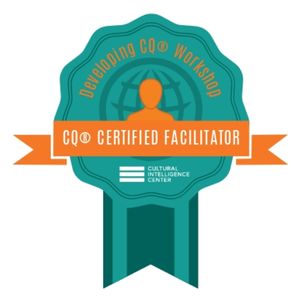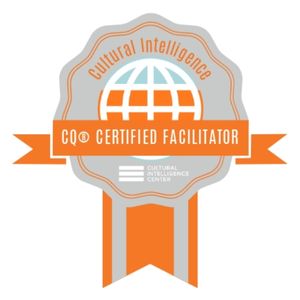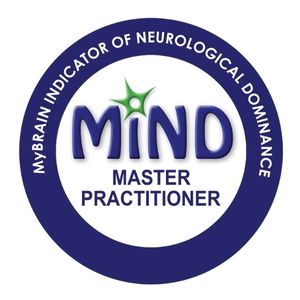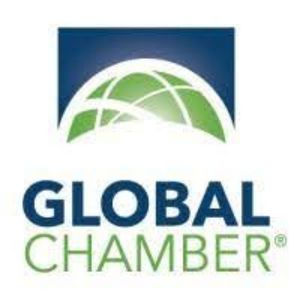Hello everybody. I’m Victoria Rennoldson, Communication and Culture Coach, and welcome to Wednesday Words with communication and cultural strategies and skills for you to learn. You can choose to watch this by clicking ‘play’ on the video above, which also has subtitles.
Or, because I know that many of you like to listen to podcasts, you can listen to the audio only version, by clicking below:
Finally, you can also read the blog as well, right here below.
If you’ve been following Wednesday Words for a while, then you know I usually share key communication skills and strategies that you can use for your own learning and development. Today we’ll be doing something a little bit different.
Today I want share with you in more detail how I work in one of my key client programmes, the ‘9 Steps to Communication Confidence’, because I realise I haven’t really talked much about this so far.
In this particular programme, I work with individual clients, who come to me independently, or through their company. These are international people who are very committed, ambitious, and understand that their communication skills are very important to unlocking their performance, currently within their role, but also for their long-term career. They can see how communication skills in English are going to help them move forward to their next job role, their promotion, and onwards.
This particular programme has 9 key steps, which we work together in 90 days, so it usually lasts around three months. I will give you here a summary of the three stages for you to get a feel for how it works.
The first stage is ‘Clarity’. This is vital, because sometimes I have a client come to me, and
1 – they haven’t established their specific communication goals, and understood how these relate to their career goals
2 – they may have a very specific view about their communication performance to date that sometimes isn’t accurate. Generally it is more negative than reality as people tend to be quite self-critical about their current performance, and don’t necessarily acknowledge where they’re doing well.
So it’s important that I give objective feedback, and we do this through an evaluation session at the beginning of the programme. This was we have a clear view of strengths and development areas, and where the focus of the programme should be. That helps me to put together a personal roadmap, which lays out the focus of the programme, and how we’re going to reach the communication goals.
From there, we then look at how the brain works, and I am very excited to share as part of my programme, the opportunity to take a neurometric profile, which is something I’m qualified in. This is a profiling tool based on neuroscience, and it helps my clients understand: How is my brain working? What are my thinking preferences? How is this influencing how I communicate? How confident do I communicate in certain situations? And how am I learning?
With these foundations in place, we then move in to ‘Communication Agility’, and this is where we get going with developing those communication skills. This is exciting because we personalise this stage to the client, depending on exactly what they need. I find that most clients start with ‘Meeting Communication’, where we explore the best ways to approach meetings, and how to express yourself clearly and concisely, plus also how to deal with challenges in meetings, e.g. when things are not going to plan, and how to react to that, and manage that professionally.
For some clients, they are doing a lot of presentations, internally or externally, and of course this sometimes can be a high pressure situation. So that’s why I also offer a module in ‘Presentation Communication’ to help people to think about how they build their presentations, particularly for the virtual space as many people are still doing this, but also consider how do you come across. Whether it’s presence, energy, body language, or voice. We also consider the structure, the presentation slides, and making sure it works for the audience so you’re communicating well and clearly.
We choose three modules altogether and the final module could be ‘Email and professional writing’, and this is an area where we look at how do we write well. How do we use email and our writing, to connect well with people and build relationships, particularly when we never meet them. Alternatively, some people are focussed on the spoken word, and what they want to be able to do is to speak more naturally and spontaneously, so that’s why I have my ‘Small Talk‘ module as well, which is about the style of conversation, being able to feel like you’re in the flow when you’re speaking, and you don’t have to hesitate to think about what it is you want to say next.
Then the final stage is all about ‘Sustainability’, and I’m very passionate about this, as this really matters to me, that you don’t just stop doing the programme, and then forget about everything that you’ve done. It matters to me that you can take the concepts that we’ve learned, the exercises, and the practical examples we’ve been using, and you can turn that into something that you can apply in your real life, and actually do it by yourself, once we’ve finished the programme.
I like to understand somebody’s habits, their daily schedule, and how they’re going to build in learning development for their communication ongoing by themselves. We do a re-evaluation, so we understand from the beginning to the end of the programme, have we made progress and made sure that we’ve moved the bar, and we also identify what areas need still work.
And then finally, we develop something I call the ‘Learning commitment charter’. This is owned by the client, where THEY commit, and say what will they take forward in the future. What will they commit to do, to continue the development at the programme end.
So, there you go, three key stages. Clearly it’s way beyond just meeting me for coaching sessions. I consider myself also an accountability and motivation partner, and I will often be checking in with my clients, in-between our sessions, and they will be checking in with me: asking questions, asking for feedback, which is fantastic because it then makes this an intensive programme, that means you’re getting the full benefit.
Hopefully, that’s given you a good view of how I work, and how this programme, the 9 Steps to Communication Confidence works. If this sounds like this is something for you, maybe you recognise yourself as that person who is ambitious, and knows that communication is one of the keys to unlocking your development and career growth, then I would absolutely love to talk to you about your specific situation, what your goals are, and also where you are today with your communication skills.
I invite you to have a free discovery call with me, where you can tell me more about yourself, explore further about the programme, I can answer your questions, and we can decide together whether this is the right programme for you. Book your free discovery call with me.
If you have any questions at all, about this particular programme, or any other types of programmes that I do in Communication and Cultural training for individuals or teams, please do get in touch. I would be happy to talk to you about how I can support you.
Thank you so much for joining me today for this very different Wednesday Words, where I shared a bit more about how I work. Next week, we’ll be going back to the usual format, and I’ll be sharing more around communication and cultural strategies and skills. It’s been great to see you, and I look forward to seeing you next time. I’m Victoria Rennoldson, Communication & Culture Coach.




